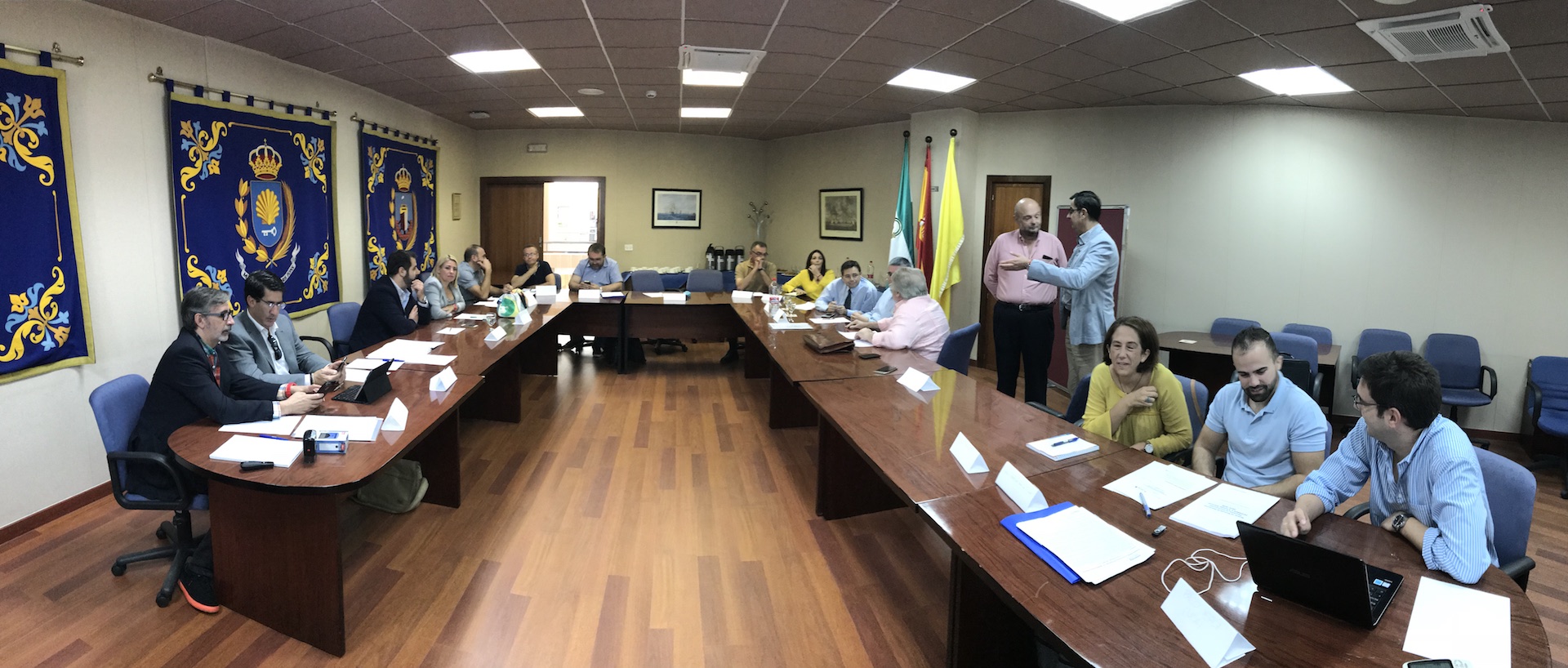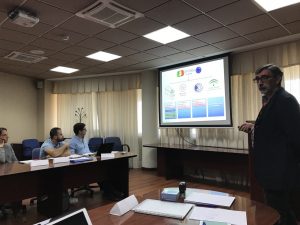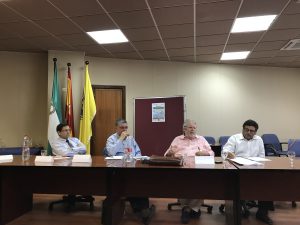Impresiones del Kick-off del 27 de octubre 27 October 2017
Kick-off del 27 de octubre
El pasado viernes 27 de octubre, los representantes de las diferentes instituciones del partenariado dieron las claves para la correcta adaptación del proyecto a su agenda, y así poder alcanzar los objetivos marcados a corto plazo en la memoria del ESPOmar. Por delante quedan dos largos años de duro trabajo, como afirmaban los coordinadores de los diferentes paquetes de trabajo y el responsable principal del proyecto el profesor Francisco Piniella.

 |
 |

